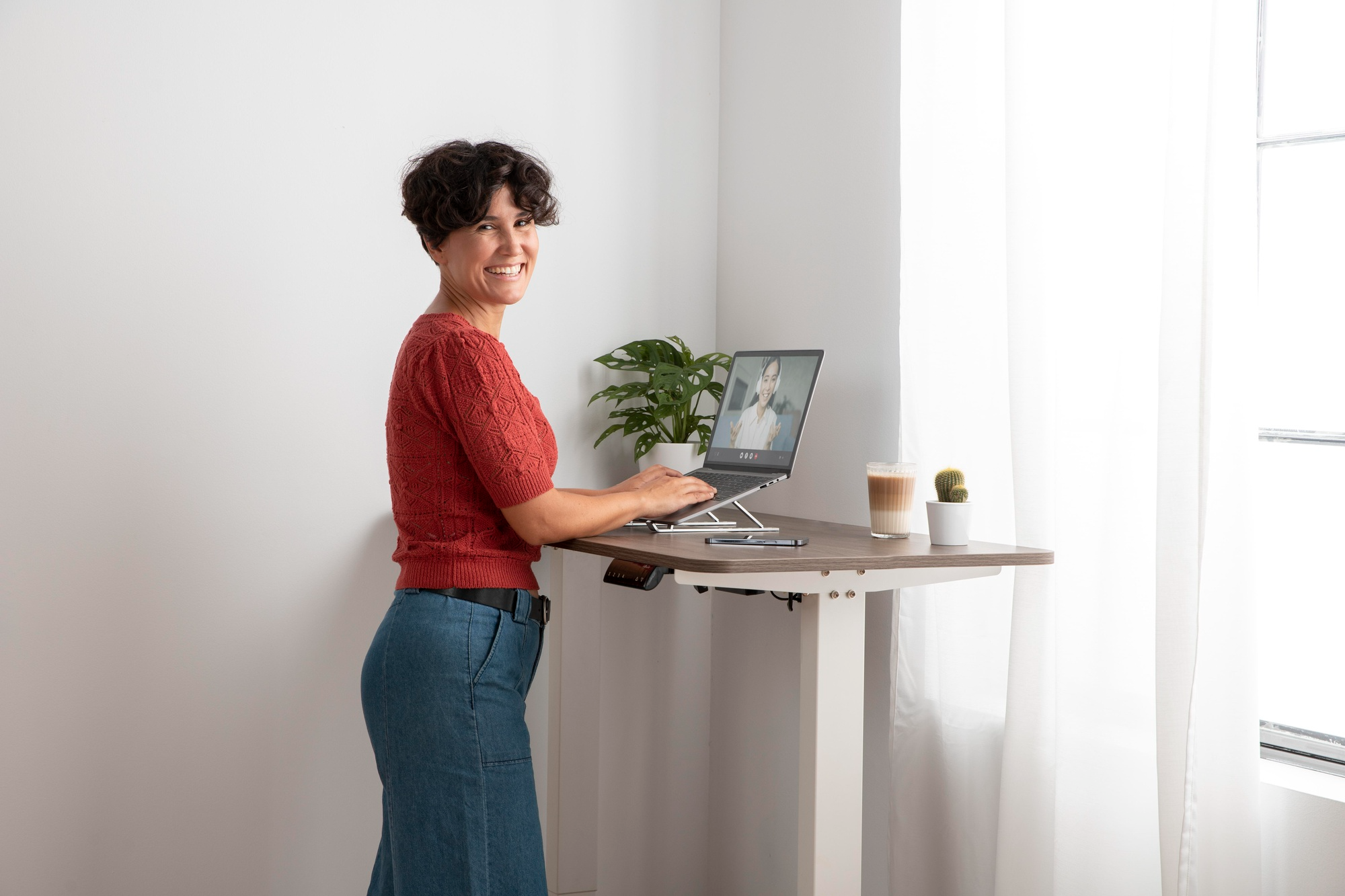
Man sitting for long hours at a desk.
Many of us sit for hours at work, during our commutes and while relaxing at home. It doesn't sound so bad but there's growing evidence that too much sitting can be as hazardous as smoking.
From heart disease to diabetes and even premature death, the effects of a sedentary lifestyle have now been declared one of the biggest modern health risks. Let's explore why too much sitting is being labeled "the new smoking" and what you can do to protect your health.
With technology making everything more convenient, people now sit for an average of 8 to 10 hours a day working on computers, watching TV or just scrolling on phones.
Our bodies were built for motion, though. When we don't move, our blood circulation, metabolic rate and muscle activity all come to almost a crawl, starting a chain reaction that winds up harming almost every organ system in our body over time.
Scientists started comparing sitting to smoking because both have cumulative long-term effects on health.
While sitting doesn't introduce toxins like cigarettes, the damage happens in more subtle ways, through metabolic and cardiovascular changes that raise the risk of chronic diseases.
When you're sitting, your muscles are almost completely inactive, burning far fewer calories. This can contribute to weight gain, obesity and insulin resistance.
Prolonged sitting reduces circulation particularly in the legs that can cause swelling, varicose veins and even blood clots (deep vein thrombosis).
Slouching on desktops or devices strains the spine, shoulders and neck, a key cause of chronic back pain and musculoskeletal issues.
Long-term physical inactivity decreases the body's sensitivity to insulin. Eventually this raises the risk of developing type 2 diabetes even in those who are not overweight.
Sitting too much results in higher blood pressure, cholesterol and triglyceride levels, all of which set the stage for heart disease in a similar way as smoking does to damage the cardiovascular system.
The sedentary routine also affects the mind. Minimal exercise diminishes the production of the neurotransmitter serotonin and other 'feel-good' hormones, which contribute to stress, anxiety, and depression.
Various studies express the long-term effects of sitting for extended periods.
These findings suggest that although exercise is important, it cannot fully negate the effects of sitting without interruption over a long period of time.
The saying "sitting is the new smoking" is a figurative device and not a literal comparison. Smoking introduces toxins directly causing cellular toxicity, while sitting inflicts damage by inactivity.
However, both:
Essentially, though mechanisms differ, the long-term effect of sitting constantly on health can be as serious as smoking.

A person breaking a cigarette in half.
Lack of exercise reduces circulation, thereby allowing fatty acids to build up in the blood vessels, one of the major triggers for atherosclerosis and heart attacks.
In conditions of slow blood flow, the brain doesn't get enough oxygen and nutrients. Therefore, it's not able to maintain focus, concentration or a good mood.
Inactive muscles lose tone and strength. Poor core and glutes lead to poor posture and back problems. With time, even bone density can decline.
Sitting after meals slows digestion, which could promote bloating, constipation and even an increased risk of acid reflux.
The good news is that with consistent small changes, the negative effects of sitting can be reversed.
Set a reminder to stand, stretch or walk for at least 2-3 minutes every half hour. Even gentle movements reactivate blood flow and muscles.
Changing positions from sitting to standing and vice versa while working prevents strained backs and improves posture.

A woman using a standing desk while working on a computer.
Replace regular phone calls with walking meetings, it boosts your creativity and counts some extra steps into your day.
Relieve tension and improve flexibility with simple stretches for the back, neck and legs.
Aim for at least 150 minutes of moderate exercise per week, the WHO recommends this. Activities such as brisk walking, yoga or cycling improve circulation and counteract sitting time.
Keep your feet flat, shoulders relaxed and screen at eye level to prevent neck and spine strain.
Replace TV marathons with light household chores, short walks or hobbies that get you moving.
At Prakash Hospital, our physiotherapists and internal medicine experts help patients manage and prevent conditions linked to sedentary lifestyles, from posture-related pain and muscle stiffness to cardiovascular and metabolic risks. Through personalized exercise programs, ergonomic guidance and preventive screenings, we help you stay active, pain-free and heart-healthy in today's desk-bound world.
Modern life has made sitting almost unavoidable, but all too often, that has a silently harmful effect on your health. Prolonged sitting has far-reaching consequences, from slowing metabolism to increasing heart disease risks, earning its comparison to smoking.
But the bottom line is balance: move more, sit less and pay attention to how your daily habits make you feel. Just small consistent movements, even standing up every half hour, can make a huge difference in the protection of your heart, body and mind.
We offer expert care across key specialties, including Medicine, Cardiology, Orthopaedics, ENT, Gynaecology, and more—delivering trusted treatment under one roof.
Prakash Hospital Pvt. Ltd. is a 100 bedded NABH NABL accredited multispecialty hospital along with a center of trauma and orthopedics. We are in the service of society since 2001.
OUR SPECIALITIES
Contact Us
D – 12A, 12B, Sector-33, G. B. Nagar, Noida, Uttar Pradesh 201301
+91-8826000033

© 2026 All rights reserved.
Designed and Developed by Zarle Infotech